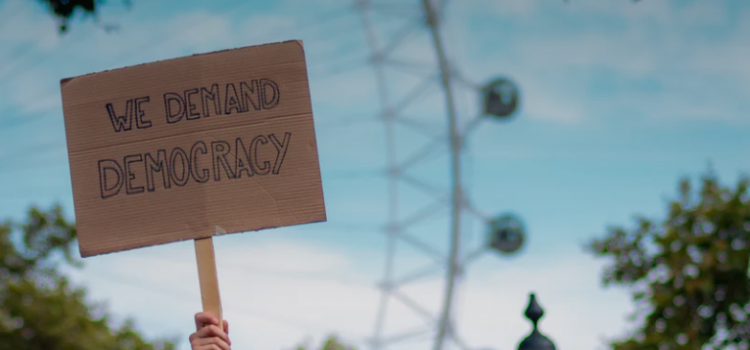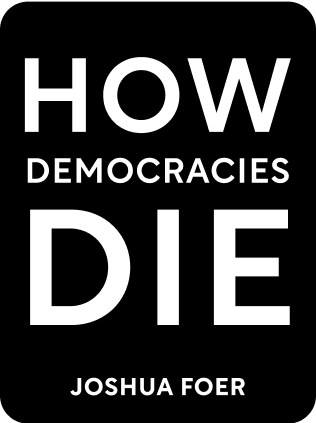

This article is an excerpt from the Shortform book guide to "How Democracies Die" by Steven Levitsky and Daniel Ziblatt. Shortform has the world's best summaries and analyses of books you should be reading.
Like this article? Sign up for a free trial here .
What is institutional forbearance? Why is it important?
Institutional forbearance is an important democratic norm that states that those in power won’t use that power to harm their political opponents or other marginalized people and groups.
Read more about institutional forbearance and why it’s so important for a democracy.
What Is Institutional Forbearance?
When political actors adhere to norms, they are agreeing to engage in political competition according to a shared understanding about what is and is not acceptable. Even if some act of extreme aggression against one’s opponents is technically permitted by the written rules, responsible politicians do not engage in such conduct, lest they undermine the proper functioning of the democratic system. It is useful to think of norms as guardrails that prevent political competition from getting too intense or the stakes of elections from getting too high, thus turning every election contest into a winner-take-all battle that justifies winning at any cost.
This brings us to institutional forbearance, the unwritten rule that political actors will not weaponize their control of institutions to marginalize opponents or hamper effective day-to-day democratic governance—even if such behavior is technically allowed under the constitution.
We can look to the United States for a positive example of institutional forbearance. There was a longstanding American political custom of having presidents serve only two terms—a norm that lasted for over 150 years, from Washington to Franklin Roosevelt. Even popular two-term presidents who may well have won third terms had they chosen to run refrained from doing so, lest they violate what was widely considered an unwritten law. The norm was so strong that it was later codified into law by the 22nd Amendment to the US Constitution.
Parties that practice mutual toleration do not view their rivals as existential threats. Therefore, they believe they have less to fear from these rivals attaining power. Accordingly, they are less tempted to abandon institutional forbearance and play hardball against them. This refusal to play hardball, in turn, generates more goodwill and further strengthens norms of mutual toleration. Thus, a virtuous circle develops that continually strengthens and reinforces democracy.

———End of Preview———
Like what you just read? Read the rest of the world's best book summary and analysis of Steven Levitsky and Daniel Ziblatt's "How Democracies Die" at Shortform .
Here's what you'll find in our full How Democracies Die summary :
- How shared norms are essential for preserving democracy
- Why the Trump presidency threatened those shared norms
- Why democracy goes beyond individual leaders and parties and must be a shared enterprise among committed individuals






